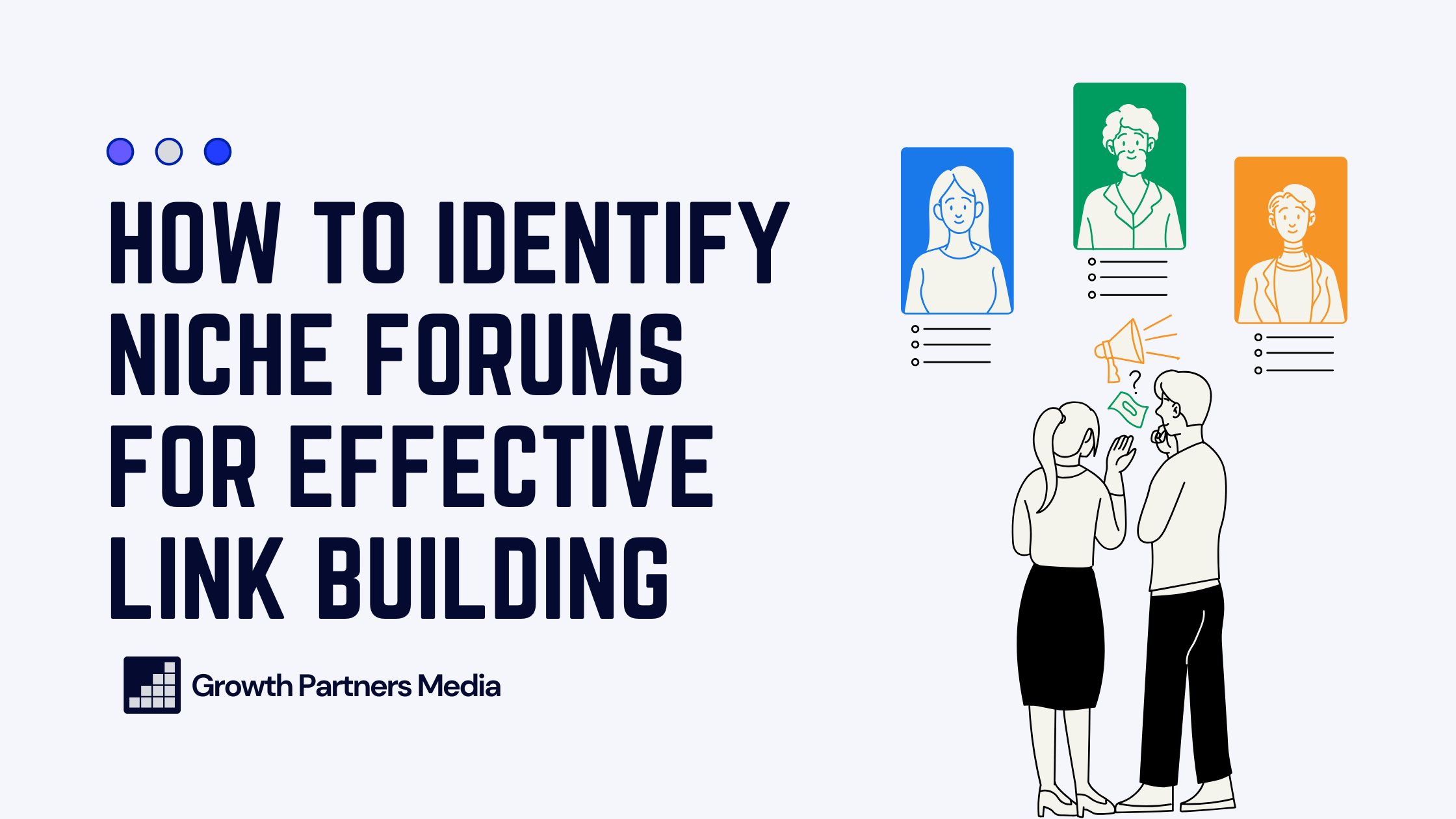Most marketers tossed forums into the SEO trash pile years ago.
“Too spammy.”
“Too outdated.”
Just low-authority no-follow links buried in graveyards of outdated threads.
A complete waste of time… or so they thought.
Then Google’s algorithm pulled a quiet pivot. And suddenly, those forgotten forum links? They started looking a lot more valuable.
Here’s why:
- The “No-follow” link attribute is no longer a dead end because it’s treated as a hint, rather than a rule by Google.
- User-generated content is also now treated the same way as blog content for ranking purposes.
This is a game-changer.
Active, well-moderated communities? They’re now screaming trust and topical authority.
Now, to be clear, I’m not saying you should dive headfirst into every dusty message board you stumble across. Far from it. The trick is knowing where to find the gold.
Other strategies for backlinks are also still critically important, such as guest posting. In fact, we wrote a post on how forum link building and guest blogging stack up.
In this guide, I’ll show you exactly how to identify niche forums worth your time, energy, and your links.
Ready to exploit the unfair advantage right under everyone’s nose?
How to Find Forums for Link Building: Step-by-Step
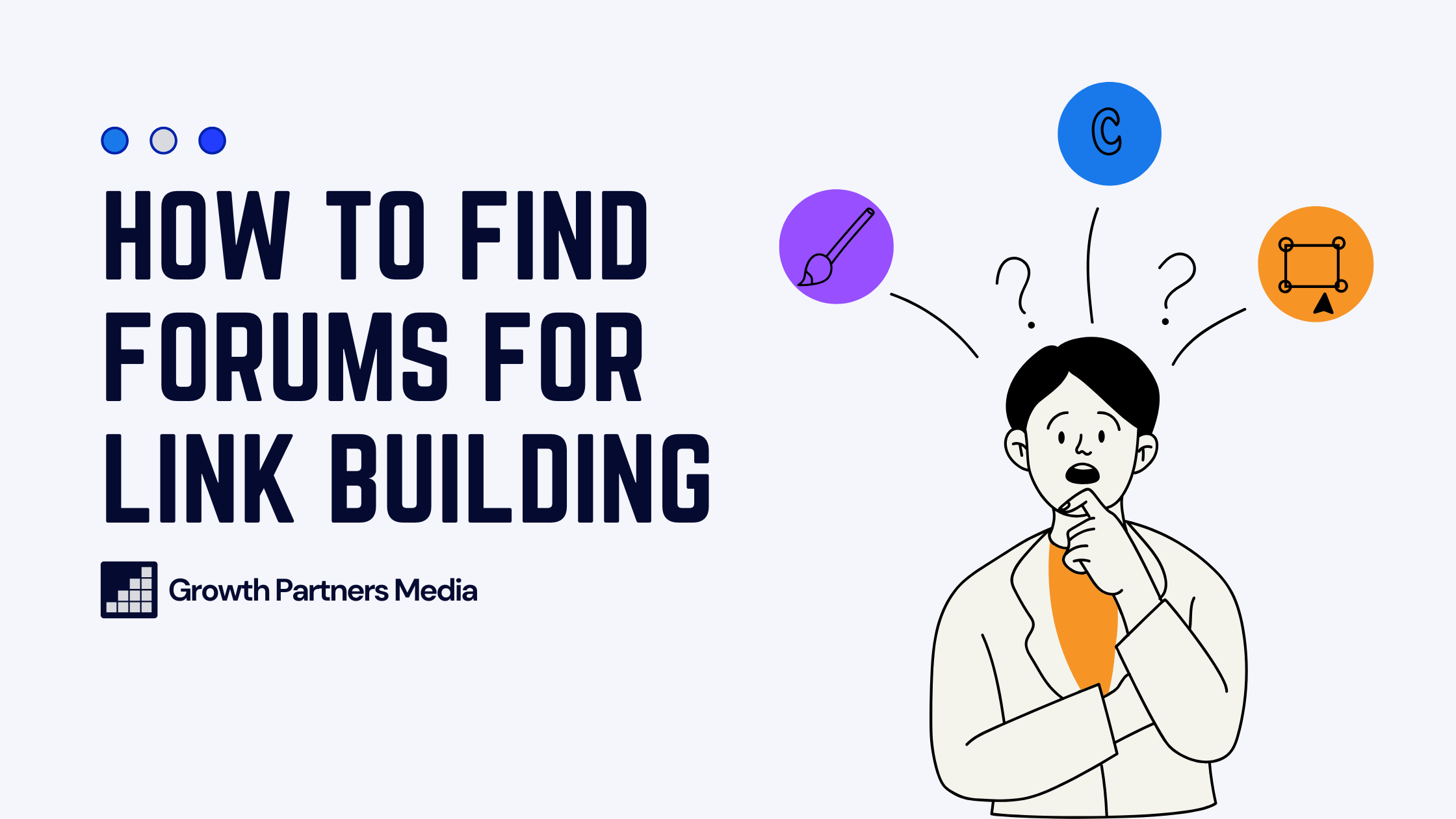
Most people treat forum prospecting like a shot in the dark. Random Google searches, outdated operator tricks, and hours lost in low-quality rabbit holes.
Let’s not do that.
If you want backlinks that actually move the needle, you need a system.
A fast, repeatable way to uncover forums that are active, trusted, and niche relevant.
Here’s how to find the forums that matter:
Step 1: Use Google’s “Forums” tab to uncover opportunities
Most people miss this. Google now has a dedicated Forums tab.
Here’s what to do:
- Punch in your industry keywords (think: “email marketing,” “fitness software,” “B2B SaaS pricing”).
- Switch to the Forums tab.
- Boom—instant access to dozens of conversations happening in real-time across niche communities.
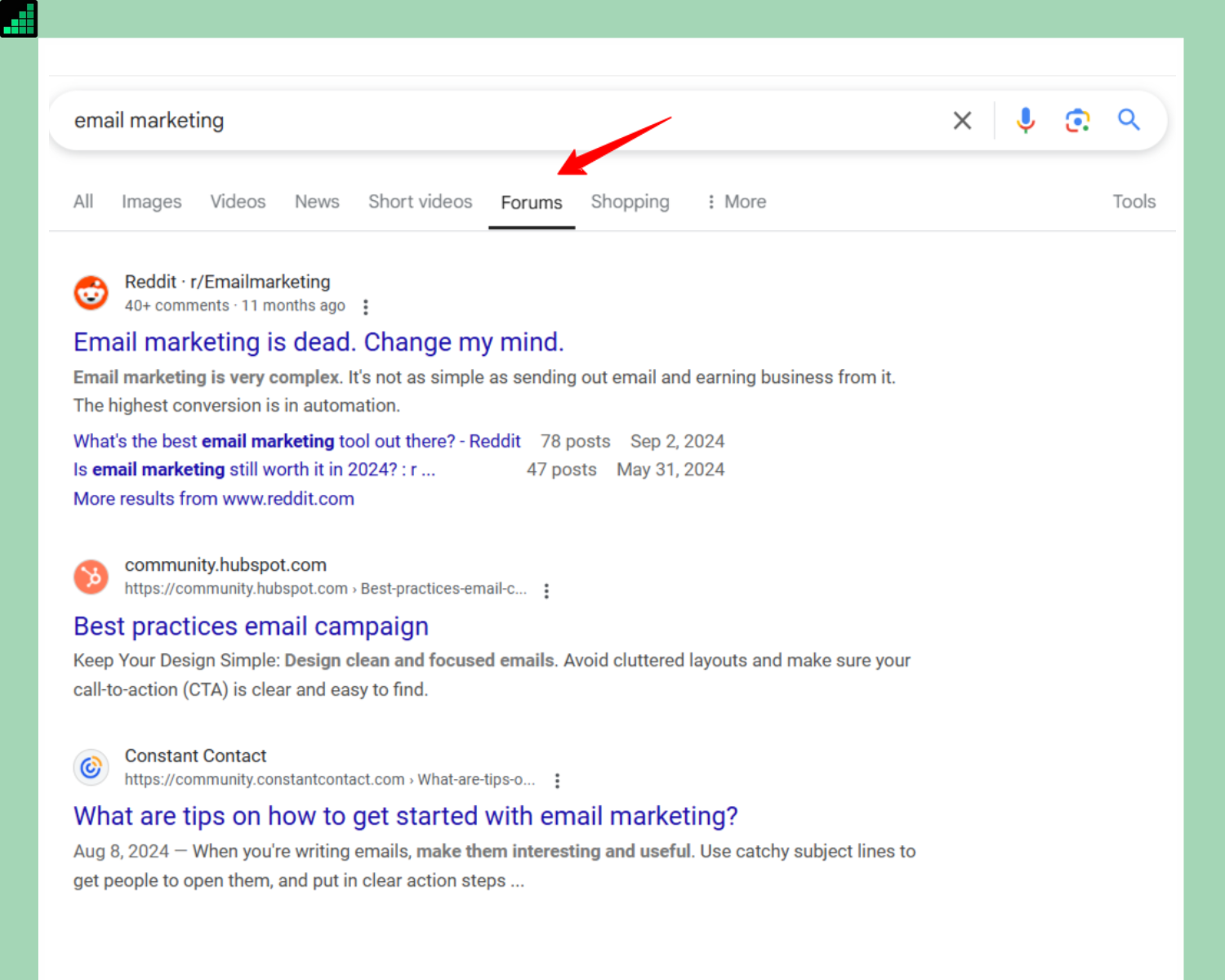
You’ll find forums you didn’t even know existed.
Use a scraping tool to pull all those forum URLs in one go. Then plug the list into Ahrefs’ Batch Analysis tool to check:
- Domain Rating
- Organic traffic
- Relevance to your niche
You’re not just looking for high DR—you’re looking for forums where your audience actually hangs out.
You could still use old-school search operators (like inurl: forum or intitle: board). But in our experience, the Forums tab consistently uncovers fresh, high-quality results with low effort
Step 2: Tap into curated communities

Let’s move beyond Google.
Sometimes, the best forums aren’t discoverable through search — they’re hand-picked and buried in curated lists or invite-only hubs.
Here’s where we look:
- FindAForum.net – A treasure trove of categorized forums across every niche imaginable.
- Niche directories – Look for user-curated resources, subreddit wikis, industry blogs, or Notion pages that list active communities. These often highlight forums that don’t show up in traditional searches.
These aren’t your typical SEO haunts. They’re where the real conversations happen. Where your audience already lives. And where a thoughtful link can carry serious weight.
Step 3: Analyze forum quality before you engage
Not every forum is worth your time.
Here’s how to filter the junk from the gems:
- Is it active? Look for new threads and replies within the past week. If it’s a ghost town, walk away.
- Are the comments legit? Real conversations. Real people. Not just bots or one-line spam comments.
- Are outbound links allowed (in context)? Check if other users are sharing links naturally, and not getting attacked or banned.
- Is there moderation? A mod presence means quality is policed, which means Google is more likely to trust it.
If it checks all four boxes, congrats, you’ve found a potential good target for brand mentions and backlinks.
You also want to check if the forum has any relevance to your niche. It doesn’t need to be entirely dedicated to your area, but do they have any existing threads or sections that cover your space?
You don’t want to place links on a pet forum about your project management tool.
How to Prioritize Forums for Link Building Impact
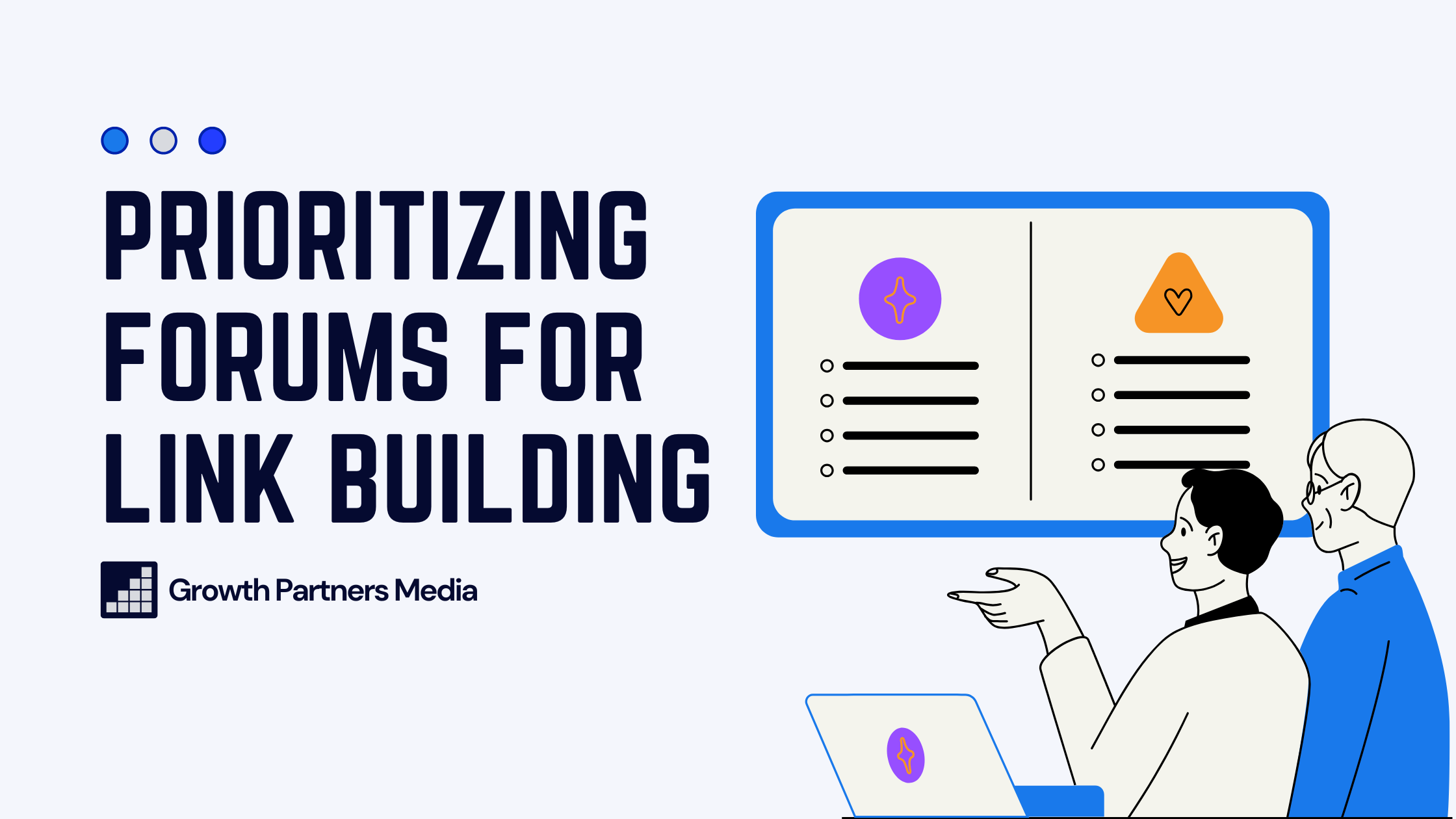
Not all forums deserve equal time and energy. Some are goldmines for authority and referral traffic. Others? Just noise and garbage.
To get the most out of your forum strategy, you need to prioritize where you show up.
Here’s how we break it down at Growth Partners Media:
Tier 1: High-authority, high-engagement forums
These are the unicorns.
Well-moderated, active daily, and packed with thousands of legit users. They’re typically broader in topic, but because of their size and authority, the SEO payoff can be big.
You’re not just getting eyes on your links here, you’re signaling trust to Google through targeted, high-quality forum backlinks.
Look for:
- DA/DR of 70+
- Active moderation and clear posting guidelines
- Threads with consistent replies and upvotes/comments
Examples:
- Reddit – Especially niche subreddits where your target users are already asking questions.
- Shopify Community – High domain authority, strong moderation, e-commerce-specific audience.
- Spiceworks – Tech-focused and full of decision-makers in IT.
These are worth going deep on. If you’re going to invest effort in engagement, start here.
Tier 2: Industry-specific communities
Now we’re talking hyper-relevance.
These forums might not carry the same raw authority as Reddit, but they make up for it with tight-knit, targeted audiences.
Think:
- SaaS founder forums
- Developer communities
- Vertical-specific spaces like travel, fitness, parenting, or finance
Don’t let the lower DR fool you, links from these communities can drive meaningful referral traffic and build credibility where it counts. Plus, it’s often easier to stand out when you’re one of the few contributing value.
Additional Tips for Prioritizing Forums

Let’s say you’ve got a big list of potential forums. Now what?
It’s time to sift for signal. Not every high-DR site deserves your attention, and not every low-traffic forum is a waste of time. Here’s how we separate:
- Use Ahrefs, SEMrush, or a similar tool to batch-analyze domain rating, traffic, and link profile. Sort by DR but don’t make it your only filter.
- Review the threads showing up in Google search. Are posts from this community ranking for any relevant keywords? If so, you’re potentially staring at a great opportunity.
- Pay attention to what other people are doing. If you see marketers naturally weaving helpful links into valuable content (and those links are sticking), that’s a green light.
- Watch for strict moderation. It might feel like a barrier, but in reality, it’s a trust signal. Google rewards high-quality, well-curated UGC. Forums that police low-effort content tend to pass more SEO value.
The big takeaway:
Always prioritize contextual authority over raw metrics.
Common Mistakes to Avoid When Choosing Forums
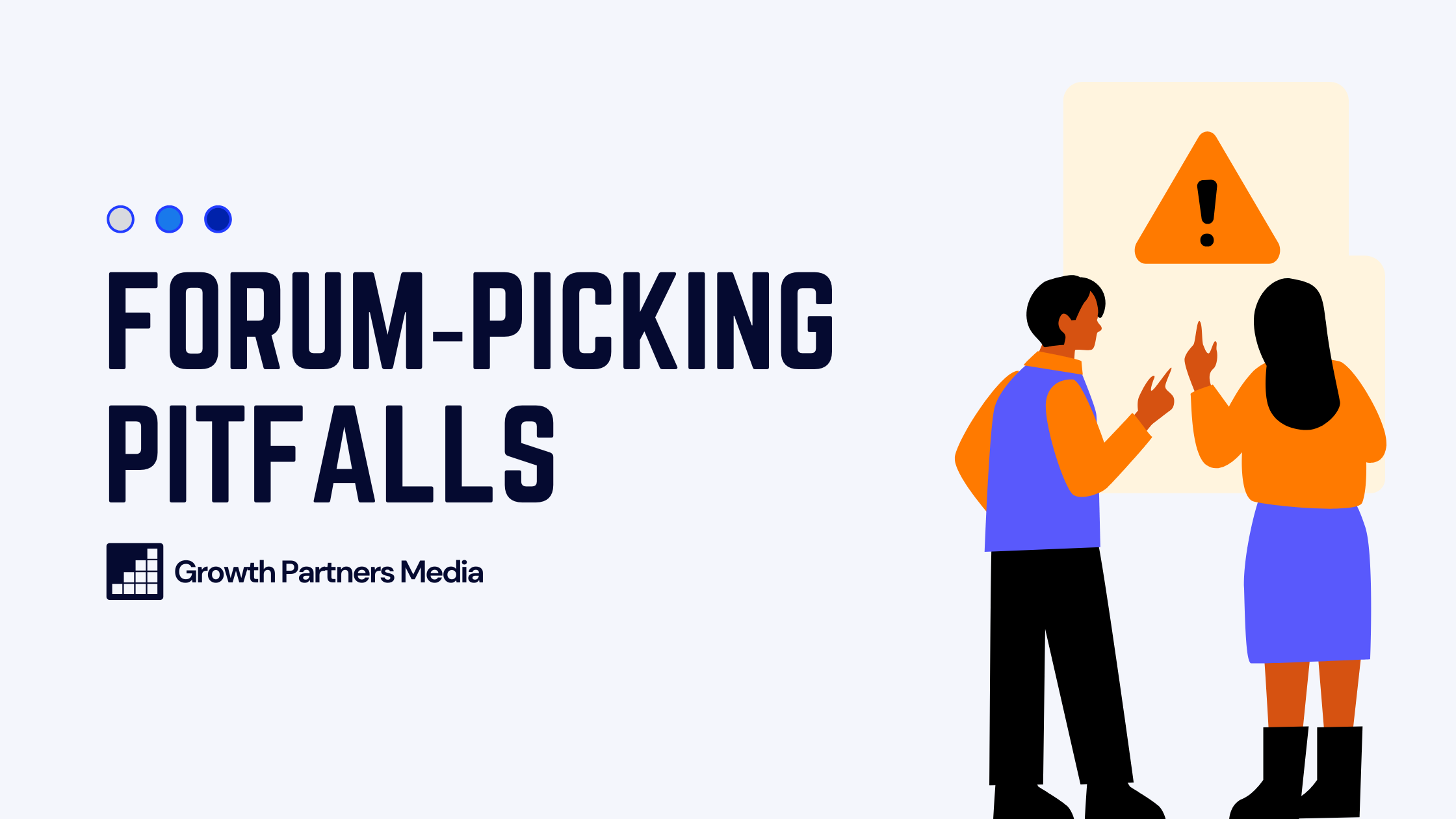
We’ve placed thousands of links on forums through our Herd Links service over the years and seen a lot of wild things. We’ve also learned our fair share of lessons through mistakes of our own.
Here are some takeaways based on 4 years of providing forum backlink services:
❌ Joining outdated or abandoned forums
Just because a forum shows up in search results doesn’t mean it’s alive. Always check for recent activity.
❌ Using brand-new accounts to immediately drop links
This is the fastest way to get flagged or banned. Forums thrive on trust. If your very first post screams, “Hi I’m here to promote myself,” you’ll very likely get banned or shadowbanned.
❌ Focusing only on Domain Authority
High DA doesn’t mean high relevance. We’ve seen niche forums with low DA drive more qualified traffic than general forums at DR 75. Context matters more than clout.
❌ Posting links out of context
Google and real users can sniff out low-effort link drops a mile away. If your link doesn’t provide value in the thread, don’t post it.
❌ Only posting links and nothing else
People actually check your profile history when you post. Especially on places like Reddit. People will have no problem calling you out if they smell anything fishy about your motives.
❌ Overlooking audience intent
A parenting forum might have decent traffic, but if your product is B2B SaaS, you’re in the wrong living room. Choose communities where the intent of users at least somewhat aligns with your offer.
❌ Not checking moderation style
Some forums are link-friendly. Others nuke anything remotely promotional. Lurk first to see what flies and what gets fried.
❌ Relying on one forum aggregator or list
Reddit, Quora, niche boards, they’re not all the same. If you only use someone else’s list, you’ll miss better forums or end up in the wrong ones. Do your own research.
Forum Vetting Checklist
Before you drop a single link, run the forum through this quick checklist. It’s a smart safeguard if you’re learning how to create forum backlinks that stick and actually help your SEO.
Note, these are some general pointers. Placing backlinks in different communities often requires totally different approaches. If you’re building links on Reddit, be prepared to fail a lot because they have multiple moderation layers.
Other communities like Quora are a lot more forgiving.
If it doesn’t pass most (or all) of these, the community is probably not worth your time:
✅ The forum has active weekly threads
Look for signs of life. If threads are getting fresh replies every few days, you’re in the right place. If the last post was from 2021… yeah, keep moving.
✅ You can find relevant posts via Google search
Run a few queries like site:forumdomain.com “relevant keyword” or just search a topic and see if threads from the forum appear naturally. If Google’s surfacing their content, that’s a good sign.
✅ Users are actual humans, not bots
Real users ask detailed questions, share personal insights, and interact with each other. If the replies feel like a spam graveyard or ChatGPT gone rogue, skip it.
✅ Contextual links are allowed (not just profile-only)
You want forums where you can naturally drop links inside helpful, relevant replies. Some forums actually don’t allow you to place hyperlinks in your comments. You can still get brand mentions from these spaces so you shouldn’t totally discount it based on this metric.
✅ Threads rank in Google
Use Ahrefs, or just do a quick Google check. If individual forum threads are showing up in the top results for long-tail queries, that forum has real authority in your niche.
✅ Mods are active (but not overly aggressive)
A good forum has moderators who keep spam out without deleting every useful link. If you see quality discussions with the occasional link still live, that’s a green flag.
✅ The forum has a niche focus
Broad forums can work, but niche-specific communities usually drive better engagement and conversions. If the forum speaks directly to your audience, it’s worth your time, even with lower traffic.
Final Thoughts: Forum Link Building Isn’t Dead—It’s Just Smarter Now
For a while, forums got a bad rap. And to be fair, they deserved it—most were spammed into oblivion or abandoned altogether.
But the game has changed.
Google now values forum content when it’s well-moderated, relevant, and packed with real user-generated insights. That means the right forum link isn’t just a backlink—it’s a trust signal, a source of referral traffic, and a visibility play all in one.
When you do it right? You’re not just link building. You’re building presence in the places your audience already lives.
Of course, finding those communities (and contributing in a way that doesn’t scream “SEO guy here!”) takes work.
That’s exactly why we built our forum backlinks service.
It’s our done-for-you forum link building service—designed to get you natural, context-rich backlinks in forums that matter. Real posts, placed by real people, in real conversations. No shortcuts. No spam. Just smart, strategic placement.
Want to see how it works? Let’s talk.
- How to Outsource Backlink Building Without Stress [2026] - October 7, 2025
- Top 3 SEO Outreach Services That Actually Work [2026] - October 7, 2025
- 9 White-Hat Link Building Techniques For AI & Google (2026) - September 23, 2025

